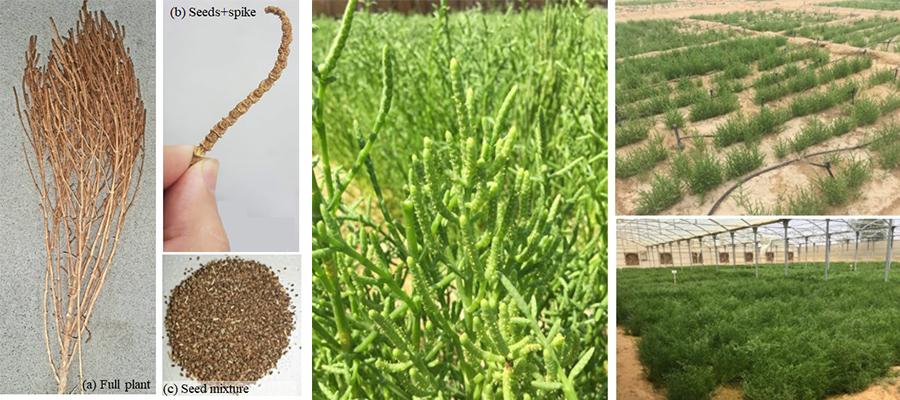- About
- Admissions
- Study at AUS
- Prospective Students
- Bachelor's Degrees
- Master's Degrees
- Doctoral Degrees
- Admission Publications
- International Students
- Contact Admissions
- Grants and Scholarships
- Sponsorship Liaison Services
- Testing Center
- New Undergraduate Student Guide
- New Graduate Student Guide
- File Completion
- New Student Orientation
- Payment Guide
- Executive Education
- Students with Disabilities
- Academics
- Life at AUS
- Research
- Contact Us
- Apply Now
- .

Seeds from locally grown plant can yield high-quality biofuel, say AUS experts
Researchers at American University of Sharjah (AUS) have discovered that seeds from a locally grown plant can produce high-quality biofuel, potentially enhancing the UAE’s efforts to secure clean energies from local natural resources.
Over two years of research, the AUS team investigated the Salicornia bigelovii, a type of halophyte that has great potential as a feedstock for biofuel. Halophytes are salt-tolerant plants that grow in marshes, mangroves and soils with high salinity. Salicornia bigelovii is known by the common names dwarf saltwort and dwarf glasswort. The plants used in the study are grown at the International Center for Biosaline Agriculture (ICBA) in Dubai, where they were field-tested at a large scale under the harsh desert environment and irrigated with high saline water. The genotype of the Salicornia used can achieve high biomass yields of approximately 3.5 kg per square meter (fresh biomass) under a high level of salinity, with the seed yield of approximately 80 g per square meter.
“We wanted to develop a novel biomass (plant material) conversion process to yield biofuels using locally grown plants in the UAE. This is the world's first study on converting Salicornia bigelovii to biofuels through thermal conversion and it constitutes a breakthrough in the production of renewable energies from non-conventional biomass resources,” said Dr. Yasser Makkawi, Professor in Chemical Engineering at AUS, and research team leader of the AUS Bioenergy and Solar Conversion Research Group (BSCRG).
The researchers note that because the bio-oil produced from the Salicornia bigelovii seeds has high energy content, and is chemically stable and has less corrosion compared to bio-oils from other resources, it is highly attractive as a clean and sustainable alternative to fossil fuels. The process used also produces biochar and water, which can be used to support the growth and development of plant and animal life in arid and semi-arid environments.
The results show that the impact of the findings will be significant both locally and internationally. According to Dr. Makkawi, “The results of this project will greatly impact the future development of modern biotechnology. It also contributes to the UAE's 2050 vision of renewable energy and sustainability. It is important to diversify the energy supplies, especially in the UAE and the Gulf region. On the global level, the outcomes of this research will contribute to international efforts in fighting climate change and global warming by offering a technically and economically feasible concept of a modern bioenergy system. We also hope that conclusions reached in this research will set the scene for the wider application of halophytic plants for biofuel production, especially in coastal deserts and marginal environments.”
While there is great potential for biofuels in general, Dr. Makkawi said that the biofuel obtained in this study can be used in the production of electricity by steam turbines and fuel for vehicles. Meanwhile, the resultant biochar may be used to enhance soil fertility by helping with retention of nutrients and the long-term storage of carbon. This can help counter land degradation and sequester atmospheric carbon dioxide, he explained.
In the next phase, the AUS research team, in collaboration with researchers at ICBA, is planning to investigate other genotypes of the Salicornia that may have even higher biomass and bio-oil yields. The team will also investigate the impact of the salinity of irrigation water on the quality of the biofuels produced.
In addition to Dr. Makkawi, the project research team includes Dr. Yehya El Sayed from the AUS Department of Biology, Chemistry and Environmental Sciences; AUS graduate students; and Dr. Dionysia Angeliki Lyra from ICBA.

